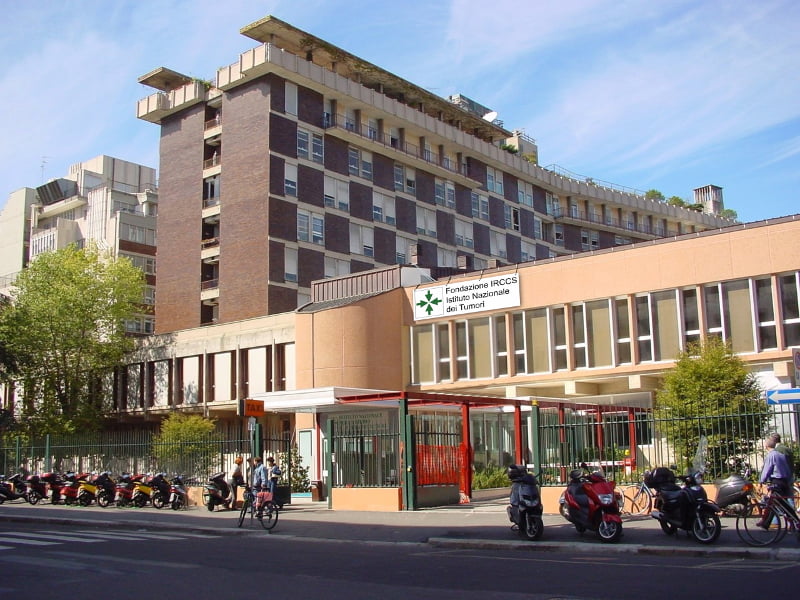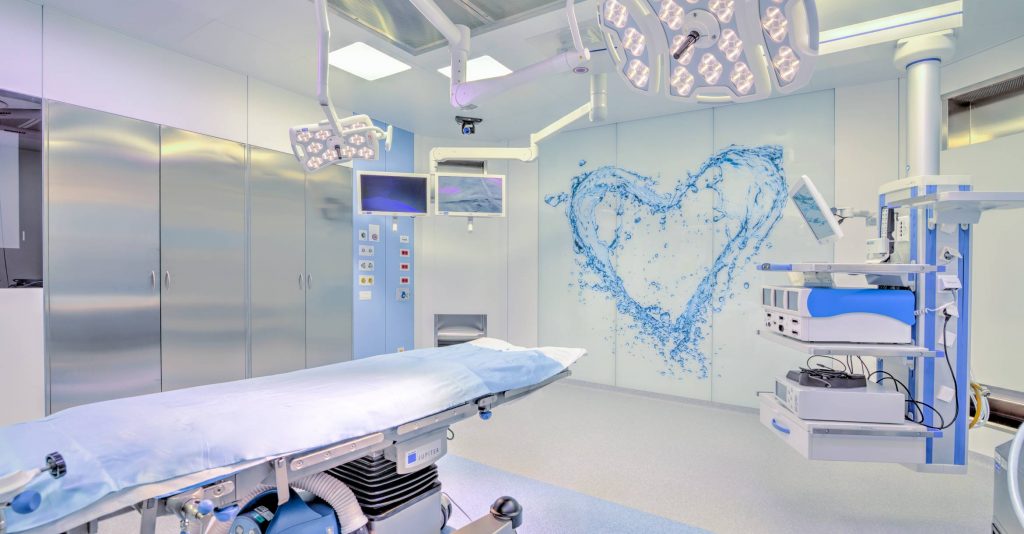Here’s your Complete Guide about Hospitals in Italy
Italy might not be a cheap place for medical tourism but it is the second-best destination in the world. Ranked by the World Health Organization, it comes next to France as the world’s second-best place to visit for medical purposes. Hospitals in Italy is best known around the world for cosmetic surgeries and hair transplants. Besides beauty treatments, Hospitals in Italy offer great medical services for illnesses. Italian hospitals offer their patients a wide range of treatments in both small as well as main cities. Due to all these excellent facilities, medical tourism in Italy is on the rise!
Hospitals in Italy are Mostly Known For:
Cosmetic surgeries, hair transplant, cosmetic dentistry, and cancer treatments.
The private hospitals although are expensive, but the services offered (accommodation and treatment) are no less than a five-star hotel. For those who cannot afford private hospitals and clinics in main cities are referred to less expensive hospitals and doctors.
Patients should always check their doctor’s credentials. To become a doctor in Italy, you would be required to practice 6 years and three years extra if you want to specialize in a certain field. If you are going to Italy for medical tourism, you would be required to opt for a private hospital because the country’s laws have prohibited specialists and surgeons to perform surgeries in state-owned hospitals.
If you want quick treatment in Italy, you would be required to pay the full cost of the treatment. This could be something of a problem for patients who want to get their treatment at cheaper rates but Italy’s vast medical services and diverse culture might prove to be worth the cost.
Schengen Medical Visa – Visa Required For Medical Tourism In Italy
The Schengen visa allows the people possessing this visa to visit any Schengen member country in Europe for medical purposes.
This visa is for people wanting to get treatment for Europe. The expiry of this Visa occurs after 90 days. For patients going for longer treatments should rather apply for a national visa for medical treatment.
The patients coming from underdeveloped or developing countries that have not attained a visa-free agreement with the Schengen member states need to get this visa prior to their departure towards any Schengen member state.
Documents Needed To Apply For The Schengen Visa For Medical Reasons
The documents required for the application for the Schengen Visa are:
- Application form. Fill in all the required information asked in the form. Sign the form after you’ve filled it up. Two photos, are identical and should not
be older than two to three months. A valid passport will be needed, issued in the past 10 years and must have a validity of three more months after your
departure from the Schengen member state. The passport data page’s copy is a must. Document showing your details about the flight to a Schengen state and back to the home state which includes the dates of the departure and arrival and flight numbers. - Travel health insurance. This includes the entire Schengen area consisting of minimal coverage of thirty-thousand euros/pounds during the period of your
stay. Proof of stay in the hospital or clinic. An accommodation that is confirmed in the clinic or hospital, or hotel booking. Invitation letter, and rental
contract. Civil status proof which includes a marriage certificate, birth certificates of yourself and children, death certificate of spouse (if available). The receipts of the paid fee that is €60 for adults and less for the children and some particular categories. - There’s a list available showing the Schengen visa fees.
- Proof for financial means. Applicant must provide with a proof that he has enough financial means to cover his stay, accommodation at the hospitals and
treatment. The proof could be provided in the form of: - Bank statement
- Sponsorship letters or bank statement of the sponsor.
- Proof showing advance payments for the treatment or statement from banks regarding other expenses. A note *preferably verbal from the office of Health
Minister. The ministry of health from your native state declares that it will cover the cost of your treatment, a letter from the government confirming this
would be needed.
Little Guide About Visit Hours, Fees, and Surgery Hours in Hospitals in Italy
- Appointments for consultants, surgeons, and physicians could be made at any time if paying a little extra does not bother you.
- Italy’s family doctors working in national health services also work for private clinics and hospitals as surgeons and specialists. It is not something new for the Italian doctors working for national health services to suggest you to see them privately.
- The private doctor’s or specialists in Italy are expensive. It may be a bit of a problem for foreigners to afford Italian doctors.
- The working hours for different doctors vary. Some work from 8 to 10 am in the morning while others I’m afternoon and evening. The working days for doctors in Italy are from Monday to Friday.
- You wouldn’t need to make appointments prior to your visit to the doctor’s however some clinics and private hospitals require appointments. Even some
clinics and hospitals offer surgeries at first come first served basis. Medical tests and x-rays are done usually at the same clinics. Doctors could be called to your accommodated place by calling in the working hours. If a physician assumes you need a specialist, he would write you a referral, in case you want
to receive social security benefits. If you want social security benefits, you might have to take the referral to your specialist or physician. - Medical specialists who are registered with an SSN posses a separate room in the state-owned hospitals and local hospitals. Social security patients are also treated by some private doctors in their private clinics.
- To receive services if medical auxiliary such as nurses and physiotherapist, you will be required to bring the referral to your family doctor to attain social security benefits.
- If a doctor is registered, you won’t require to pay for the services if you’re away from home.
Hospitals In Italy Depending On Diseases
Here’s a list of some of the hospitals in Italy where you should go depending upon the diseases.
In Case Of Skin Cancer
Dermopathic Institute of the Immaculate Conception (IDI) in Rome is rated as the best out of the all other Italian hospital facilities for treating skin cancer.
In the Case Of Pediatric tumors
Bambino Gesù Pediatric Hospital in Rome occupies the top ranking in case of the pediatric tumors.
In Case Of Coronary angioplasty
Continue Cardiology Center in Milan is going to be the best choice for coronary angioplasty.
In the Case Of Colon cancer
In this case, Gemelli Hospital in Rome is rated as a top choice.
In the Case Of Lung cancer
National Cancer Institute of Milan and IEO of Milan are at the top of the list or treating lung cancers.
In the Case Of Breast cancer
The European Institute of Oncology (IEO) in Milan occupies the first place for treating breast cancer.
Childbirth
Sant’Anna Hospital of Turin is one of the most preferred hospitals for childbirth.
Pediatric tumors
For treating pediatric tumors, the top-ranking is occupied by Bambino Gesù Pediatric Hospital in Rome.
Why You Should Choose Hospitals in Italy For Medical Tourism?
- In Europe, Italy is ranked #2 by WHO.
- The climate in Italy is the Mediterranean.
- The doctors here speak fluent English.
- 5-star luxury accommodations are available.
- High technologies are utilized here and top-class facilities are provided.
Some Things To Keep In Mind When Visiting Hospitals in Italy
- Preparing and planning for your medical travel to Italy becomes quite easy when you have a clear idea about what to do. Here are some of the points to keep in mind:
- Make sure that your passport is valid. Visa is not required if you’re coming from Canada or the US to Italy for a stay less than 90 days.
- Purchasing travel insurance is an excellent idea! With travel insurance, you are protected against unseen events.
- Credit cards are accepted throughout Italy.
- Bring all your medical documents that your doctor might want to see.
- Get photocopies of your passports, if your passport gets lost then it is easier to get a replacement of your passport with its photocopy.
- Make sure you’ve enough medication. If you’re coming to Italy for 10 or more days, bring medications for 20 days so, in case of any problems, you’ve got a backup. Also, you have to protect these medications from things like heat and humidity.
- Pack according to the season. Italy is cold during winter and warm during summer, so pack according to your season of traveling.
While you seek your medical treatment from Italy, you not only get world-class, advanced facilities, but you get the best medical care in one of the world’s most beautiful countries. Italy features state of art medical facilities and technologies. Also, it has 1400 hospitals among them 48 are research hospitals, 18 JCI accredited hospitals and 600 private hospitals. It is estimated that around 700,000 foreign patients from all around the world come to Italy for their treatment as the top hospitals in Italy are known all around the globe for top-notch medical care.
Source: Wikipedia Italy













